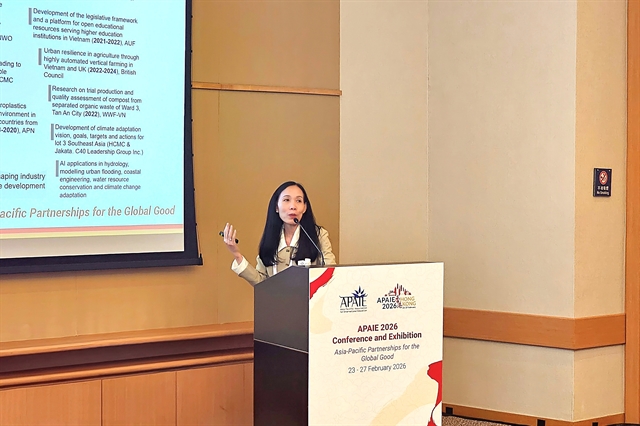 Politics & Law
Politics & Law

The 70th Anniversary of the Geneva Conventions – An Opportunity for Việt Nam to Stand at the Front of Recommitment to International Humanitarian Law

|
| The original Geneva Convention. |
The Embassy of Switzerland in Việt Nam would like to draw attention to this year’s 70th anniversary of the Geneva Conventions, a key element of International Humanitarian Law and of ongoing importance. On August 12, 1949, the four Geneva Conventions were adopted. After two world wars, the international community had realised the need to protect the values of humanity in times of war. The recommitment of all States to international humanitarian law and dedicated efforts to strengthen it are very much needed today, too.
In 1859, Geneva-born businessman Henry Dunant was travelling through Northern Italy where he stumbled across a scene of a major military campaign. He found thousands of dead and tens of thousands of wounded soldiers, left unattended and without proper medical care by their respective armies.
The scenes he witnessed motivated him to publish an account A Memory of Solferino in which he suggested the creation of relief societies – known today as Red Cross societies – as well as the formulation of what he called “some international principle, sanctioned by a Convention”, both with the aim of alleviating the suffering of the wounded in the battlefields. Five years later, in 1864, the first Geneva Convention, signed by fourteen States, was born.
This first legal framework establishing rules for the conduct of war helped to limit the effects of armed conflicts. A second convention protecting the shipwrecked followed in 1907, and a third one regulating the treatment of prisoners of war was adopted in 1929. The fourth Convention added an essential element: the protection of the civilian population, heavily affected by modern warfare particularly during World War II.
Today, all States are parties to the four Geneva Conventions. By adhering to them, States agree to protect all persons who are not or no longer participating in hostilities, such as wounded and sick soldiers, prisoners of war and civilians. In combination with three additional protocols adopted in 1977 and 2005 respectively, the Geneva Conventions are the centrepiece of International Humanitarian Law. Switzerland was the first country to ratify them in 1950. For Việt Nam, which became a State party in 1957, it was the first international convention it chose to ratify.
The Geneva Conventions are saving lives every day. They alleviate human suffering and grief and thus play a crucial role in post-conflict reconciliation and in the restoration of peace. Evolving methods of warfare and the rise of new political and military challenges however pose considerable challenges to international humanitarian law. Additional efforts are, therefore, necessary to ensure respect for it and to maintain the relevance of the Geneva Conventions in a world in which armed conflicts continue to cause immense harm, particularly to the most vulnerable among us.
Few countries understand the relevance of the Conventions better than Việt Nam, which has seen two devastating wars fought on its territory. Việt Nam and its people have first-hand experience with the suffering caused by war. The painful lessons learned can help protect victims of future wars. With its upcoming Chairmanship of ASEAN and its membership of the UN Security Council, Việt Nam can make an important contribution to raising awareness about the enduring relevance of International Humanitarian Law and the need to strengthen its application in armed conflicts worldwide.
Let us use the occasion of this 70th anniversary of the Geneva Conventions to reflect on their achievements, and on what needs to be done to ensure their lasting success.




